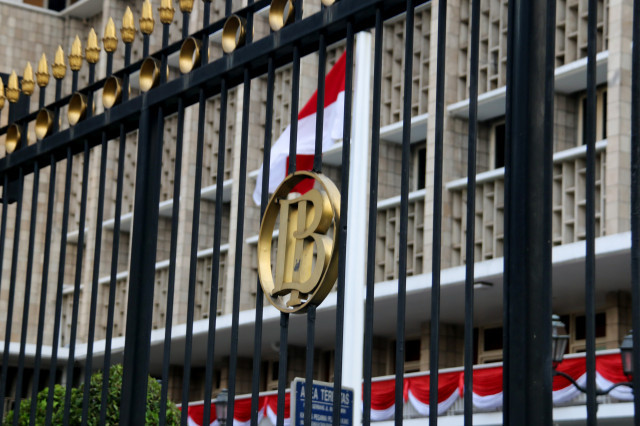Popular Reads
Top Results
Can't find what you're looking for?
View all search resultsPopular Reads
Top Results
Can't find what you're looking for?
View all search resultsIndonesia’s forex reserves drop to $135.2b in September
The current reserves level is estimated to be sufficient to support 9.1 months of imports and payment of the government’s debts, BI said.
Change text size
Gift Premium Articles
to Anyone
I
ndonesia’s foreign exchange (forex) reserves dropped by US$1.8 billion in September to $135.2 billion, mainly due to the government’s foreign debt payments and the central bank’s efforts to stabilize the rupiah, Bank Indonesia (BI) announced on Wednesday.
The current reserves level is estimated to be sufficient to support 9.1 months of imports and payment of the government’s debts, BI said.
“Bank Indonesia is of the view that the foreign exchange reserves are adequate, supported by stability and a positive outlook for the economy, in line with various policy responses to push for economic recovery,” the central bank said in a statement.
The rupiah exchange rate depreciated by up to 1.6 percent against the United States dollar in September as the coronavirus-induced economic downturn and concerns over the central bank’s independence weighed on the currency. The rupiah gained 0.2 percent to Rp 14,692 against the greenback as of 3:55 p.m. on Wednesday.
The adverse impact of the ongoing COVID-19 pandemic on Indonesia’s economy is more likely to remain until the end of 2020, Bank Mandiri economist Andry Asmoro said.
“This therefore limits the confidence in the recovery progress and causes a degree of uncertainty in the domestic financial market, which triggers a higher risk for capital flight,” he wrote in a research note on Wednesday.
The inflow of foreign direct investment (FDI) is liable to stagnate as the pandemic has significantly disrupted the global supply chain, he went on to say. “This consequently causes pressure on the balance of payments and thus foreign reserves and the rupiah exchange rate.”
However, imports shrank faster than exports and this will narrow the current account deficit and support the balance of payments, he went on to say.
“Another positive catalyst for the balance of payments may come from positive developments with the COVID-19 vaccine,” Andry stated.










